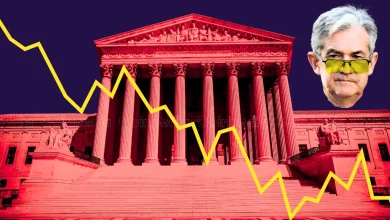
In the rapidly evolving world of technology, quantum computing stands as a beacon of both immense potential and considerable risk. Quantum-resistant coins have emerged as a response to a challenge that looms on the horizon: the advent of quantum computers capable of breaking the encryption securing traditional cryptocurrencies, such as Bitcoin and Ethereum.
Recent advancements, like Google’s announcement of its groundbreaking “Willow” chip, highlight the growing capabilities of quantum computing. This chip can solve complex problems in just five minutes, tasks that would take classical supercomputers billions of years to complete. While today’s crypto assets remain secure, the risk escalates as quantum technology continues to develop.
The Need for Quantum-Resistant Coins
Investors who once believed Bitcoin provided a comprehensive safety net are being urged to reconsider. The looming threat of quantum computing is causing concern among crypto enthusiasts, prompting them to explore quantum-resistant coins as a viable alternative. These coins are designed with state-of-the-art cryptography, such as one-time digital signatures, to ensure security even in the face of quantum computing advancements.
Quantum-resistant coins function like formidable locks that are difficult to break or reuse, making them a prudent choice for those looking to safeguard their investments in the long term. Altcoin Daily has identified several of these coins, offering investors peace of mind by ensuring their holdings remain secure against the impending quantum computing challenge.
Algorand (ALGO)
Among the leading quantum-resistant cryptocurrencies is Algorand, which employs the innovative Falcon post-quantum digital signature technology. Every 256 blocks, Algorand cryptographically signs its blockchain history, safeguarding past transactions from quantum threats. Although it does not yet secure future transactions, protecting the blockchain’s history is a vital step in preparing for the quantum era.
Cellframe (CELL)
Cellframe, with its ranking at 698, is another notable player in the quantum-resistant space. This third-generation blockchain is designed from the ground up for quantum safety. It supports post-quantum cryptography and incorporates features like multi-level sharding and hardware-friendly scalability. Written in pure C language, Cellframe offers unparalleled performance and easy upgradeability, positioning itself as a strong contender for developers building quantum-safe applications.
Hedera (HBAR)
Hedera Hashgraph is a popular choice among quantum-resistant coins, utilizing SHA-384 cryptography—a level of security that even the most powerful quantum computers are unlikely to breach. With compliance with top-secret government standards, Hedera ensures its network remains secure as the quantum landscape evolves. Its expanding ecosystem, featuring prominent names like Karate Combat and Ton FM, enhances its appeal.
Bitcoin (BTC)
Despite the quantum concerns, Bitcoin remains a resilient long-term option. It will require algorithmic upgrades to maintain its security, but its robust network and adaptability make it a formidable choice. The primary risk lies in dormant wallets with lost keys, yet active wallets can seamlessly transition to quantum-resistant algorithms.
Quantum Resistant Ledger (QRL)
Lastly, the Quantum Resistant Ledger (QRL), ranked 601 in the crypto market, is specifically designed to combat quantum threats. Employing the XMSS (eXtended Merkle Signature Scheme), it offers unparalleled security by ensuring all aspects of the blockchain—from transaction signatures to the ledger itself—are quantum-proof. This focus on comprehensive protection positions QRL as a significant player in the world of quantum-resistant cryptocurrencies.
In conclusion, as quantum computing continues to evolve, the importance of quantum-resistant coins becomes increasingly evident. By adopting these advanced cryptographic techniques, investors can safeguard their assets against future quantum threats, ensuring a secure and prosperous future in the world of cryptocurrency.






